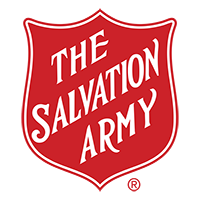The Salvation Army

Mission
The Salvation Army, founded in 1865 in London, England by General William Booth, is an evangelical part of the universal Christian church. The Salvation Army has been supporting those in need without discrimination for 130 years in the United States.
Nearly 30 million Americans receive assistance from The Salvation Army each year through a broad array of social services that range from providing food to the hungry, relief for disaster victims, assistance for the disabled, outreach to the elderly and ill, clothing and shelter to the homeless and opportunities for underprivileged children.
Transforming lives since 1865, The Salvation Army’s ministry is motivated by the love of God. Its mission is “to preach the gospel of Jesus Christ and to meet human needs in His name without discrimination.”
Local Emergency Assistance
While every disaster is unique and creates its own special needs, the core of The Salvation Army’s disaster program consists of providing several basic services. The Salvation Army’s disaster services range from caring and feeding the first responders utilizing our Mobile Canteen, to assisting disaster survivors in a variety of ways. Our services are adapted to the specific needs of individuals and communities and scalable according to the magnitude of the disaster and include, but are not limited to: Food Service; Shelter; Emergency Assistance; Donations Management; Emotional and Spiritual Care; Emergency Communications; Disaster Case Management; Clean-up and Reconstruction; and, the ability to work with our partners that bring added resources.
Training Requirements
The Salvation Army has a standardized disaster services curriculum that is taught all over the world, and Army encourages anyone, staff or volunteers to take the Introduction to Disaster Services and Incident Command before they respond to a disaster. Other courses offered are: Community and Government; Disaster Food Service; Disaster Social Services; Emergency Assistance in Disaster Operation; Foundation of Emotional and Spiritual Care; Application of Emotional and Spiritual Care; Finance and Administration; Liaison Officer; Planning Section; Preparing Together; Public Information Officer, Safety Officer; Volunteer Management; First Aid/CPR; Leadership; Critical Incident Stress Management (CISM) courses; and, ServSafe Food Safety training.
Background Checks
To ensure the safety of those we serve, all Salvation Army volunteers and staff are required to complete a background check.
